Many nutrients are essential for life, and an adequate amount of nutrients in the diet is necessary for providing energy, building and maintaining body organs, and for various metabolic processes. The skin functions normally when adequate nutrition is provided. For example, deficiency of essential fatty acids is shown to increase epidermal permeability and transepidermal water loss. Any dietary imbalance in the form of nutritional deficiency, specific nutrient inadequacy or excess and toxic components can disturb the equilibrium of the skin. Deficiencies of several vitamins, minerals, and fatty acids have clear cutaneous manifestations.[1–4] Skin diseases may lead to metabolic imbalances and cause nutritional deficiencies.
The demand for nutrients in skin is altered under stress conditions. Excessive inflammation of the skin is known to increase the requirements of specific nutrients like folic acid and protein. A low-calorie and low-protein diet has been recommended in the treatment of psoriasis . The improvement of psoriatic symptoms is due to the lowering of the overall protein intake, by limiting epithelial proliferation and decreasing polyamine levels.
Psoriasis is an inflammatory condition that appears to be aggravated by an inflammatory diet. An inflammatory diet may consist of a food allergen or a diet with imbalanced ω-6 and ω-3 fatty acids. Many psoriatic patients show increased sensitivity to gluten and their symptoms improve on a gluten-free diet. A vegetarian-based diet may put an individual at a risk of eating high amounts of vegetable oils and soy products, and low amounts of fish, which can tip the balance toward a pro-inflammatory state. Low serum calcium and zinc during pregnancy is known to cause pustular psoriasis.
Supplementations of food containing calcium and zinc have been suggested in such situations. Some of the medications and treatments used for psoriasis are known to create nutritional deficiencies. For example methotrexate is known to result in folic acid deficiency. Vitamin C is an essential part of skin health both as a small molecular weight antioxidant and as a critical factor for collagen synthesis.
Vitamin C contributes to photoprotection, decreases photodamage, and is needed for adequate wound healing. Oral supplementation with vitamin C may help prevent UV-induced damage, especially in combination with supplemental vitamin E. Dietary vitamin C may also provide photoprotection, but the extent of the protective effects will require additional research.
Although vitamin C appears to benefit dry skin and may support wound healing, further research is needed to determine the effect of vitamin C on both. Lastly, the greatest effects of vitamin C supplementation are seen when it is combined with other micronutrients, such as vitamin E and zinc. The role of food in the induction of various skin disorders and skin diseases leading to nutritional deficiencies is well known.
The photo-protective potential of antioxidants, the effects of micronutrient supplementation on the skin immune system, and the modulating effects of fatty acids on skin disorders are well documented. Skin diseases due to nutritional deficiencies, the dietary role in skin immunity and various skin diseases, and the role of antioxidants and other supplements in skin health have been reviewed. To maximize skin health and maintain a healthy-looking glow, be sure to get a good variety of all essential vitamins and minerals in your diet daily . If you have a nutrient deficiency, talk with your doctor about appropriate supplement dosages. If you have eczema or psoriasis, ask your doctor about lotions, ointments, or oral medications as treatment options. Dry skin is the primary and foundational stage of getting skin diseases like eczema.
What Vitamin Are You Lacking When You Have Dry Skin So, the first step towards prevention is the treatment of dry skin. Now that you know the connection between Eczema and vitamin deficiency, we hope you will add the right vitamins and supplements to your diet. Also, remember to keep your skin hydrated and healthy to prevent the problem from worsening. If any of the above-mentioned solutions work for you, do write in to share. Symptoms of vitamin C deficiency appear once plasma concentrations of ascorbic acid drop below 10 micromolar (μM), a level that can be prevented by consuming as little as 10 mg of ascorbic acid daily .
Cutaneous manifestations of scurvy result from declines in collagen synthesis, leading to disruption of connective tissue and fragility of blood vessels. Early symptoms in the skin include a thickening of the stratum corneum and spots of small subcutaneous bleeding . As scurvy progresses, wound healing is impaired due to the loss of mature collagen, which allows wounds to remain open . Skin lesions caused by vitamin C deficiency are remediated by an adequate intake of vitamin C. The antioxidant properties of vitamin C and its role in collagen synthesis make vitamin C a vital molecule for skin health.
Dietary and topical ascorbic acid have beneficial effects on skin cells, and some studies have shown that vitamin C may help prevent and treat ultraviolet -induced photodamage. However, the effects of vitamin C in the skin are not well understood due to limited research. This article discusses the potential roles of vitamin C in the skin and summarizes the current knowledge about vitamin C in skin health. The association between skin disorders and nutritional deficiencies is well established. Relation between health and food has gained interest in recent years.
Dermatologic conditions linked with nutrition can range from nutritional deficiencies, excess nutrients or metabolic disorders. Dietary modifications, although based on anecdotal reports or theoretical grounds, might help prevent recurrences of many skin diseases. In vitro studies and animal models have given us some insight in understanding the role of nutrients in skin diseases. However, there is a gap in the understanding on how combinations of nutrients, as they appear in the diet and when they are taken as multiple supplements, work in vivo. The effective dosage and toxicity of nutritional supplements need to be defined. It's been ingrained in us that a healthy and well-balanced diet is necessary for normal daily functioning and growth.
However, it may not be that simple to realize when we're deficient in certain vitamins and minerals, even when we're eating healthy! Vitamins and minerals play a major role in carrying out the normal functions of our bodies, including synthesizing tissues, removing waste products, and being necessary precursors for enzymes. Therefore, deficiencies can result in several health problems, so it is important to know what signs to look for in order to meet the body's needs! For instance, oral signs such as burning tongue and mouth sores, feeling tired after a good night's rest, having a pale appearance, or brittle fingernails can all be signs of particular nutrient deficiencies. Topical application of vitamin C, alone or in combination with other compounds, may result in greater photoprotection than oral supplementation because of the more direct route of administration.
In one mouse study, topical application of ascorbic acid delayed the effects of chronic high-dose UVB exposure on the skin, including a reduction in skin wrinkling and the development of skin tumors . In pig models, topical application of vitamin C reduced the number of sunburned cells, decreased erythema response, and reduced DNA damage induced by UVA exposure . Topically applied combinations of vitamin C and vitamin E are more effective in preventing photodamage than either vitamin alone. In particular, this combination of antioxidant vitamins decreased the immunosuppressive effects of UV exposure , increased MED, and decreased cell damage . From converting food to energy, to combating cholesterol and even depression. For example, B1 is full of antioxidants to increase circulation and prevent signs of aging.
B5, B6, and Folic Acid contribute to healthy skin in different ways. A B-Complex supplement provides the B vitamins needed for proper skin health. A vitamin D deficiency may trigger skin conditions like eczema and psoriasis upon becoming very severe. In the initial stages, the same can be predicted with dry skin. If you are noticing dryness – mostly during winter – it could be due to the nutrient deficiency. In order to make up for it, experts recommend getting some sunshine to let your body generate its own share of vitamin D.
And on the diet front, include the following foods in your regimen to boost vitamin D intake. Vitamin C deficiency is important to maintaining a healthy lifestyle and avoiding the symptoms that come with deficiency. Your body needs vitamins and minerals to function normally, and one of these is vitamin C. Vitamin C deficiency can cause dry skin that easily bruises and more if left unresolved.
That's why it's important to make sure you're getting enough of this essential vitamin so health problems from not getting enough vitamin C don't occur. Look to remedy the unwanted signs of vitamin C deficiency with supplements and eating sources of vitamin C. Studies on the effect of vitamin C supplementation on wound healing have reported somewhat mixed results.
Data from laboratory animals and humans show that vitamin C deficiency results in poor wound healing, and vitamin C supplementation in deficient individuals shows significant benefits (31, 59-61). This suggests that vitamin C may only affect specific facets of the wound healing response. Topical ascorbic acid has not been properly evaluated prior to or during wound healing in humans.
Although VAD manifestations are more common in underdeveloped countries, they are evident in the United States when induced by liver cirrhosis, malnutrition, or alcoholism. Liver disease patients evaluated for liver transplantation often have vitamin A deficiency. It is a public health concern in developing countries, with male preschoolers being a particularly at-risk population. Both dietary quality and diversity can deteriorate in economic crises. The prevalence of vitamin A deficiency with night blindness may have increased during the 2008 world economic crisis and may not have recovered once food prices waned later in 2008. Early dietary intervention, preferably within the first 1,000 days of life, is important to break the cycle of malnutrition and its undesirable consequences.
But along with improving heart and bone health, omega-3s may be just what's needed to reverse hair loss. Studies have shown that consistent use of omega-3 fatty acids can help to increase hair density and thickness. However, research suggests that for the best results, people should opt for sourcing omega-3s through foods rather than relying solely on supplements.
So incorporating fatty fish such as salmon, trout, canned tuna, sardines, or mackerel are ideal sources for the supplement. Getting too little vitamin B12 in your diet can also cause changes in your skin, according to a 2015 review published in the American Journal of Clinical Dermatology. Authors of the review say B12 deficiency can cause skin conditions like atopic dermatitis and acne. Because some people don't properly absorb vitamin B12, check with your doctor to see if high doses of B12 supplements or injections are necessary. Vitamin A can be considered the most important vitamin in supporting animal life.
Deficiency occurs in endemic proportions in developing countries and is considered to be the most common cause of blindness in children throughout the world. Besides its essential role in vision, vitamin A is also important in cellular differentiation and in maintenance of epithelial integrity. No nutritional deficiency is more synergistic with infection than vitamin A.
The 2 main mechanisms involved in the prevention of disease are the effect of vitamin A on the immune system and on epithelial integrity. Epidermal vitamin A deficiency may result from a deficit of nutritional vitamin A, exposure to sunlight or any UV source, oxidative stress or chronological aging. Accordingly, increasing epidermal vitamin A may be beneficial. Retinoic acid's immune regulatory role may include pivotal effects on leukocyte function.
If the skin on your fingertips is suddenly flaky, you may have a vitamin B deficiency. B vitamins such as niacin and biotin are extra important for healthy skin, says Bank. This review article focuses on the dermatologic manifestations of selected nutrient deficiencies, including protein-energy and micronutrient-related malnutrition. The various nutrient deficiencies presented may share common features.
However, distinctive cutaneous signs may prompt clinicians to consider a nutritional cause and help distinguish a nutrient deficiency from other common dermatologic conditions. The recent reemergence of forgotten nutritional deficiencies, such as scurvy and pellagra, in the context of predisposing risk factors that may uniquely affect women more than men makes this topic timely. Recognition of nutritional disorders is important because appropriate treatment may reverse cutaneous signs and prevent irreversible sequelae. Vitamin A, vitamin B1 , vitamin B2 and vitamin B3 all help to maintain healthy skin, according to Harvard Health Publishing. Vitamin C also helps make the collagen that helps with healing wounds, which include the cracks that can develop in dry skin.
Additionally, the Harvard T.H. School of Public Health notes that the mineral zinc is necessary to create new skin cells and repair damaged ones. If you have abnormally dry skin, vitamin A deficiency might be the culprit, according to the 2010 review published in the Indian Journal of Dermatology. The 2015 issue in Podiatry Today confirms vitamin A deficiency can lead to skin dryness. So be sure to include plenty of vitamin A-rich foods in your diet daily and take a multivitamin supplement containing vitamin A. The vitamin A RDA is 900 micrograms for men and 700 micrograms daily for women.
Fish oil contains several powerful, anti-inflammatory properties that help repair skin barriers and skin cells. It helps you consume omega 3 fatty acid that boosts your immunity and helps in preventing inflammation and itchy skin conditions. They help your skin heal and recover from all kinds of skin conditions caused by eczema. Vitamins are essential to your health and body functions, and these days, poor diets and stressful lifestyles can often result in vitamin deficiencies.
What many people don't realize is the extent vitamin deficiency affects skin health. Higher intakes of dietary vitamin C have been correlated with a decreased risk of dry skin , suggesting that ascorbic acid may have effects on trans-epidermal water loss . In cell culture models, addition of vitamin C promotes the synthesis of barrier lipids, which would establish a functioning stratum corneum with low water permeability . One study using topical vitamin C in human subjects correlated its use with decreased skin roughness .
However, another study suggested vitamin C increased TEWL when applied to the skin . Thus, the effects of vitamin C on skin dryness are not clear. Go shopping for hair, skin, and nails supplements, and one of the most common options on shelves centers around Vitamin B and biotin in particular. Studies have shown that biotin deficiency is often linked with hair loss. Specifically, B vitamins are known for helping to carry oxygen and nutrients to the scalp to support hair growth.
While B vitamins are available in supplement form, people can also focus on improving their diet by incorporating whole grains, meat, fish, seafood, almonds, and dark leafy greens. Vitamin A is essential for the maintenance of differentiated epithelia. Deficiency of vitamin A results in hyperkeratinization with reduced number of sebaceous glands and blockage of sweat glands. Hypovitaminosis A also affects the skin by causing xerosis, generalized hyperpigmentation, and sparse and fragile hair. Plugging of the follicular openings with spiny horns is one of the classic signs of vitamin A deficiency as in phrynoderma.
Deficiency of other factors, such as Vitamin B, C, and E, calories, and essential fatty acids, have been incriminated in phrynoderma. The first signs of a deficiency can include fatigue, lower back pain, and muscular pain, and cramps. Because it affects calcium absorption, it makes you prone to fractures. "Rickets, skeletal deformities, even a stooped posture are signs. It can soften the bones and there will be low bone mass making you fall prey to fractures.
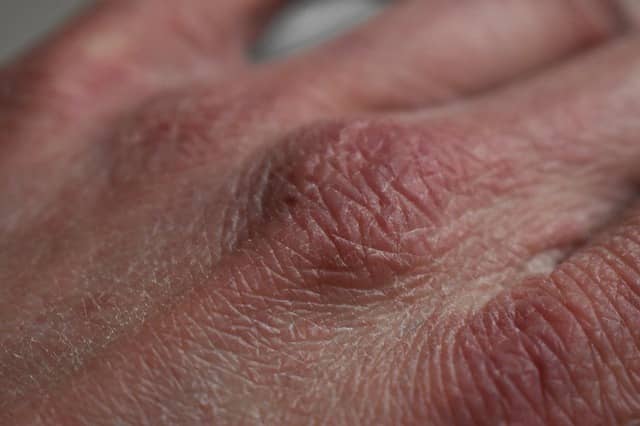













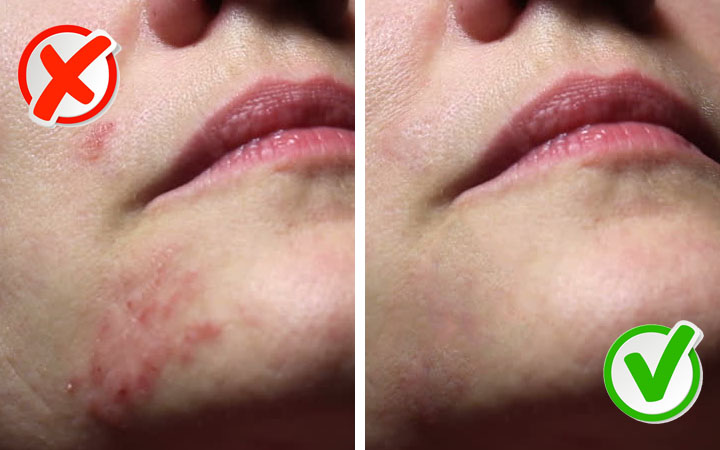


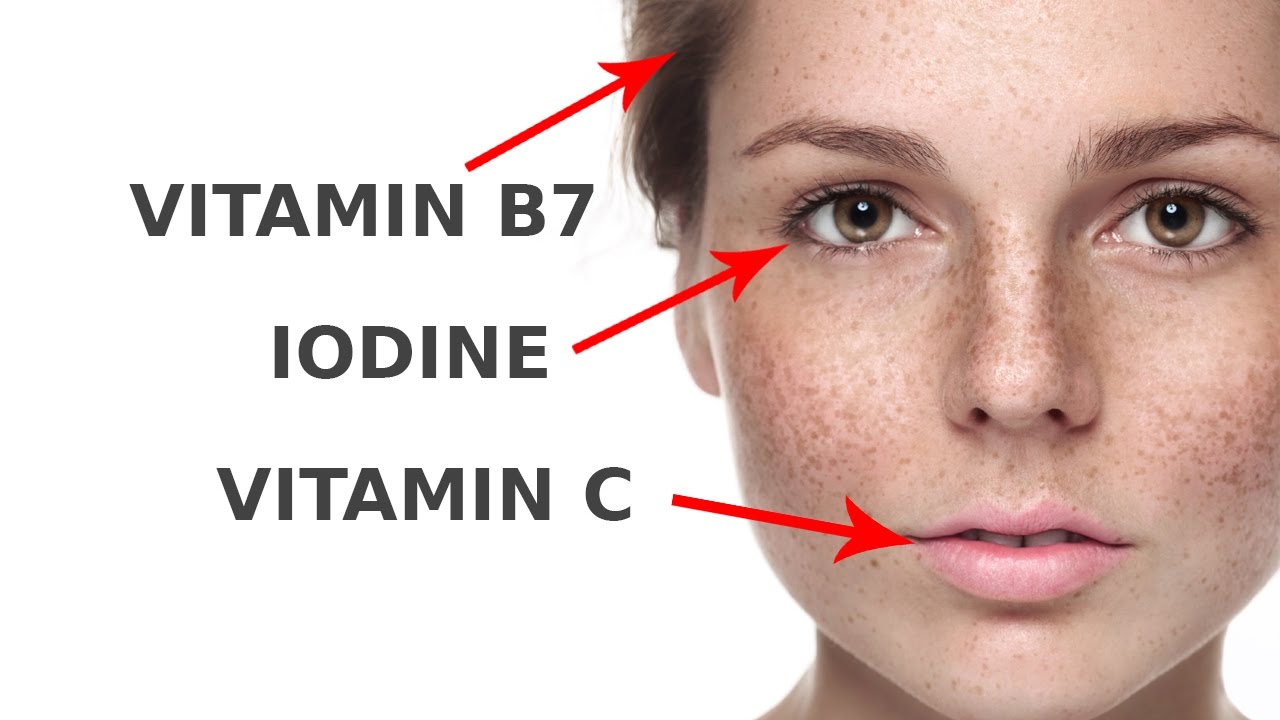


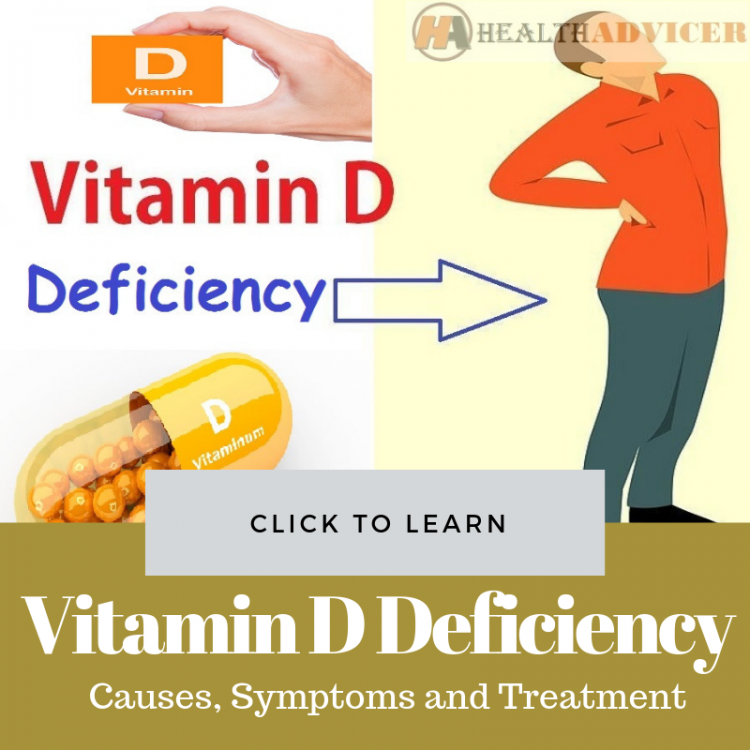

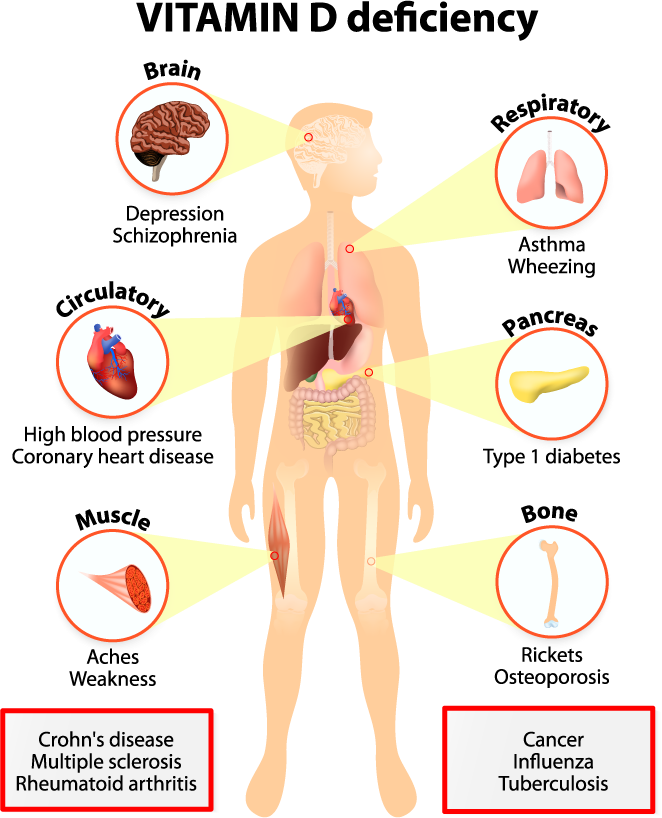


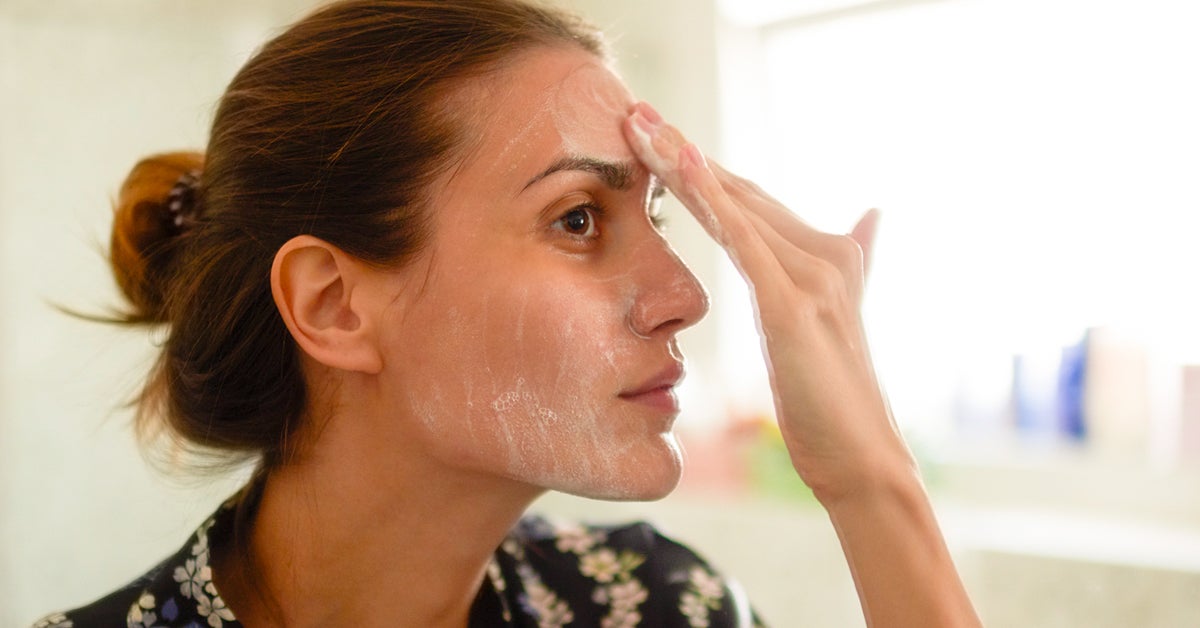

No comments:
Post a Comment
Note: Only a member of this blog may post a comment.